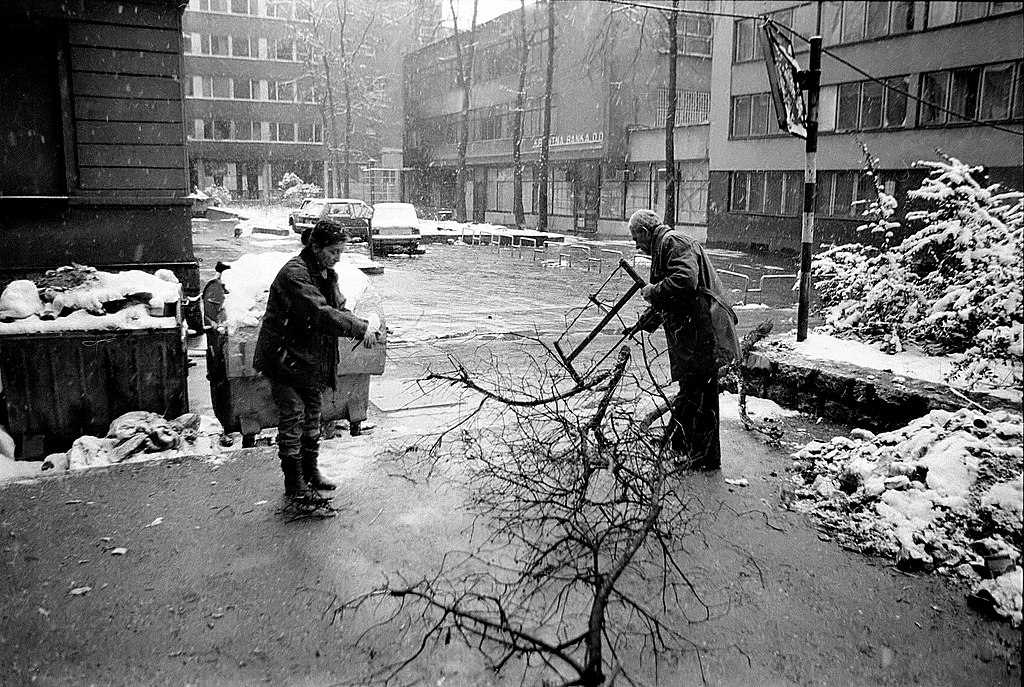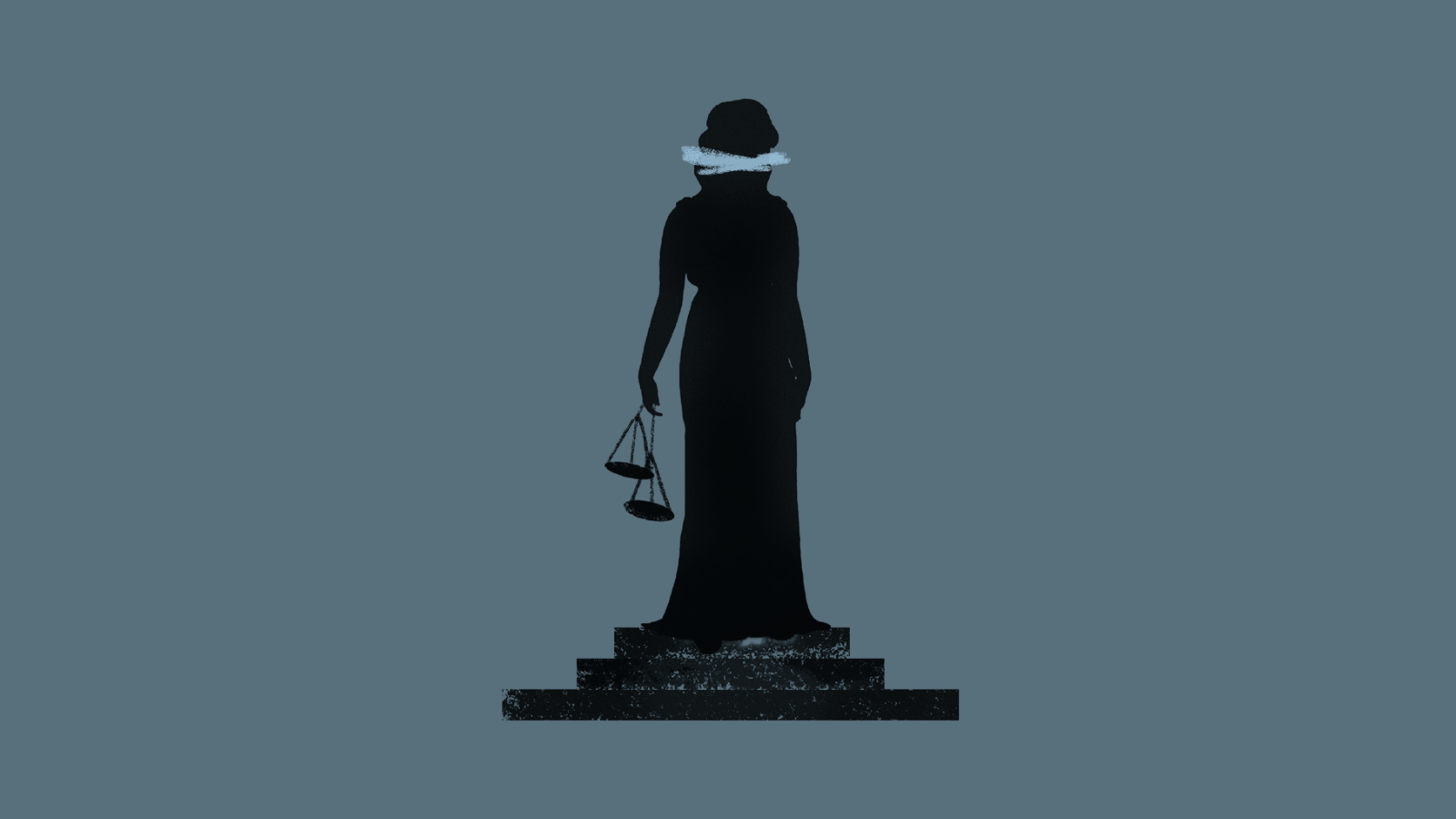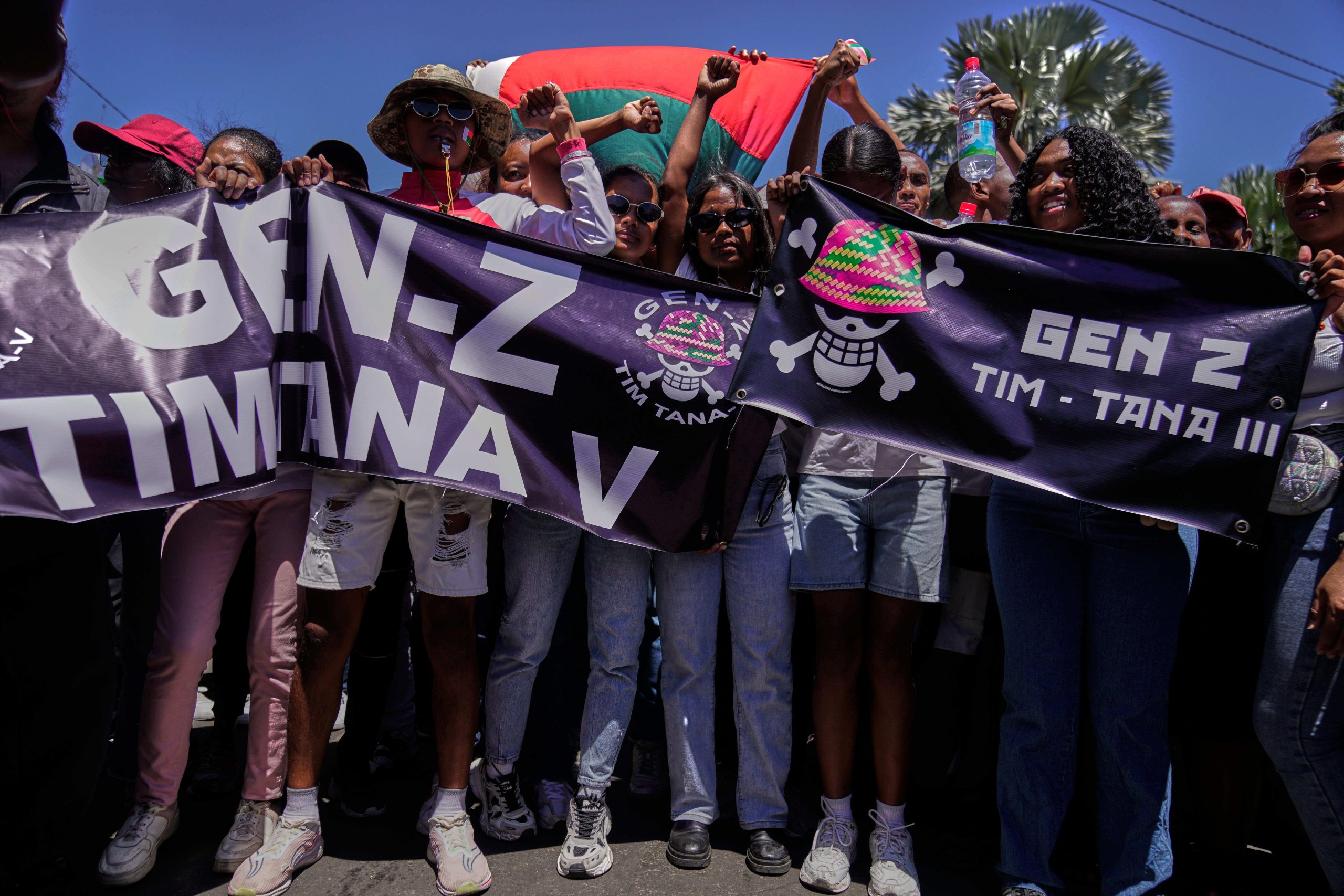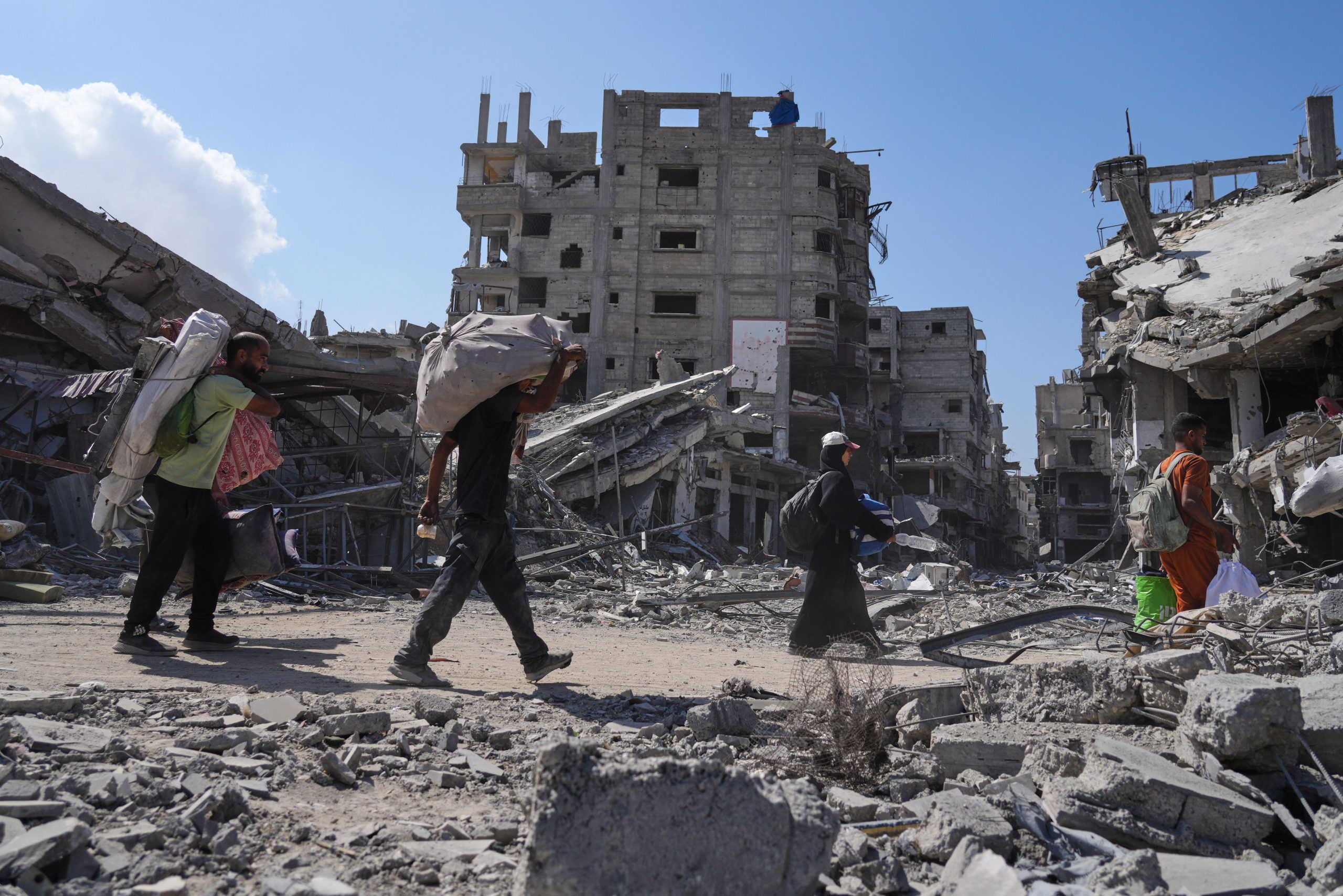It is, in spite of some signs that things may be improving, still impossibly hard to make any sort of statement at all about the situation in Bosnia-Hercegovina. It is possible to read that it was the threat of air strikes that persuaded the Serbs to withdraw their heavy artillery from positions above and around Sarajevo, that it was the Russians who persuaded them, that in fact the Serbs relocated their tanks in civilian areas where air strikes against them would not be possible and from which they could attack Sarajevo just as easily as before, that the Russians and Greeks are backing Nato, that the Russians and Greeks, in defiance of Nato are ganging up with their Orthodox allies the Serbs to ensure the success of Serbian strategy, that now that the Bosnian Croats under Tudjman are willing to form a federation with the ‘Muslims’ this may provide the basis for a deal with the Bosnian Serbs to preserve some sort of unified state of Bosnia-Hercegovina, that the partition of Bosnia into three mini-states is inevitable and the ‘Muslims’ must be forced to accept it, that black is white and yes is no and down is up and stop is go and it remains only to join the demented old codgers in James Fentons Ballad of the Shrieking Man and sing:
Tramps are mad
And truth is mad
And so are trees and trunks and tracks.
The horror maps have played us true.
The horror moon that slits the clouds
The gun
The goon
The burly sack
The purple waistcoats of the natterjacks
Have done their bit as you can see
To prise the madness from our sanity.
It will not do, however, this codger-fashion despair. It will not do to decide, in the saloon bars of our hearts, that they have hated each other for millennia over there, they have been wanting to slaughter each other for centuries, and now the goblins are out of the bottle, the warlords are standing at their roadblocks, let them get on with it. Equally unsatisfactory is the cleaned-up, Newspeak version of the above, which says the Situation Is Complex and there are No Easy Answers and do we really want Our Boys to be embroiled forever in What Is, After All, A Civil War?
It will not do because there is still such a thing as truth, however much the war and the world’s politicians may have shredded it. And that truth ,for me, lies in the nature and meaning of the city of Sarajevo, where, as Susan Sontag has said, the twentieth century began, and where, with terrible symmetry, it is ending.
I have never been to Sarajevo, but I feel that I belong to it, in a way. I am proud to be an honorary member of the PEN club of ex-Yugoslavian writers, and I hope they will not think me presumptuous if I say that as a result of this newly-forged connection I, too, can claim to be, in some sense, an exile from Sarajevo, even though it is a city I do not know.
There is a Sarajevo of the mind, an imagined Sarajevo whose ruination and torment exiles us all. That Sarajevo represents something like an ideal; a city in which the values of pluralism, tolerance and coexistence have created a unique and resilient culture. In that Sarajevo there actually exists that secularist Islam for which so many people are fighting elsewhere in the world. The people of that Sarajevo do not define themselves by faith or tribe, but simply, and honourably, as citizens.
If that city is lost, then we are all its refugees. If the culture of Sarajevo dies, then we are all its orphans.
Sarajevo’s truth (as opposed to the saloon-bar version) is that the different communities have not been hating each other since the dawn of time, but have been good neighbours, schoolfriends, work-mates and lovers; that in this city miscegenation and intermarriage have been not the exception, but the norm. (And if they were bad neighbours, enemies at school, and rivals at work, and if their marriages failed, it was for the ordinary human reasons of personality and affinity, rather than the ‘cleansing’ evils of nationalism).
Sarajevo’s truth (as opposed to the Newspeak version) is that the city has been the scene not of a civil war but of a war of aggression by Theses; that if the Serbs do once and for all cease their bombardments, it will be because they have already seized ‘their’ quarter of the city, forcing a de facto partition on what should have remained united; and that the outside world seems bent on imposing on this hybrid city the ‘logic’, the ‘reality’, of ethnicity, and on giving the aggressor the spoils of war.
Sarajevo’s truth is that its citizens, who reject definition by religion confession, who wish to be simply Bosnians, have for their pains been labelled by the outside world as ‘Muslims’. It is instructive to imagine how things might have gone in former Yugoslavia if the Bosnians had been Christians and the Serbs had been Muslims, even Muslims ‘in name only’. Would Europe have supported a ‘Serbian Muslim’ carve-up of the defunct state? It’s only a guess, but I guess that it would not. Which being true, it must also be true that the ‘Muslim’ tag is part of the reason for Europe’s indifference to Sarajevo’s fate.
I have not been to Sarajevo — I have wanted to, but it has thus far proved impossible to arrange — but I have in recent months met three of its many extraordinary citizens: Zdravko Grebo, of the radio station that is the city’s voice and conscience, Radio Zed; Haris Pasovic, a man bursting with projects, the man who brought about last year’s Sarajevo Film Festival — and what an achievement, to stage a festival of over a hundred movies in the midst of such a war!; and Kemal Kurspahic, editor of Sarajevo’s battling newspaper Oslobodjenje. They taught me a further, simple truth: that to define the people of besieged Sarajevo simply as entities in need of basic supplies would be to visit upon them a second privation: by reducing them to mere statistical victimhood, it would deny them their personalities, their individuality, their idiosyncrasies — in short, their humanity. When UNPROFOR officers limit the number of personal letters that can be carried in or out of the city; when permission for artists to visit the city is refused, as Pasovic can attest it has been, and when Western government spokesmen avow that culture is a luxury in wartime, this denial of Sarajevo’s humanity is precisely the crime they are committing.
Grebo, limping from a wound, overwhelmingly impressive in his gentle dignity — seems to embody Sarajevo’s spirit; Pasovic, its determination to keep its culture alive. Kurspahic is more melancholy, and a recent essay by his Oslobodjenje colleague Zlatko Dizdarevic expresses the city’s present mood. ‘Sarajevo no longer believes anyone … Sarajevo has seen everything there is to see till now, and it has felt the worst there is to feel upon its own skin. The results are obvious. Until six or seven months ago, every true Sarajevan needed at least an hour to walk from the Holiday Inn to the cathedral. You had to stop and say hello to so many people, to ask after everyone. Now that same distance takes just 15minutes because no one stops. No one has anything left to ask anyone. ‘He tells of a boy whose father was killed, and who now says, ‘Last night I dreamt about my father. I dreamt about him on purpose.’ ‘Somebody will one day have to watch out’, Dizdarevic warns, ‘for boys from Sarajevo who dream about their murdered fathers on purpose.’
A city, a people, does not have an unlimited supply of spirit, not even this city, this people. Will the secular ‘Muslims’ of today become vengeful fundamentalists of tomorrow, dreaming on purpose of the dead? So far, ball accounts, hard-line Islamism has made amazingly small strides in the city, but that’s just so far. Will Sarajevo be saved? Sarajevo scarcely believe it will. But the fact remains: that the fight for the survival of the unique culture of Sarajevo is a fight for what matters most to us about our own.
I have just seen a strange short film in which a man driving down the sniper-infested streets of Sarajevo repeats, over and over, like a mantra, my name. Salman Rushdie, Salman Rushdie, Salman Rushdie; Salman Rushdie; Salman Rushdie, Salman Rushdie; Salman Rushdie, Salman Rushdie, Salman Rushdie. Is he chanting it to remind him of his danger, or as a kind of spell to keep him safe? I hope it is the latter, and it is in that spirit of sympathetic magic that I have begun to murmur, under my breath, the name of this unknown city of which I declare myself to be an imaginary citizen:
Sarajevo, Sarajevo, Sarajevo,
Sarajevo,
Sarajevo, Sarajevo,
Sarajevo, Sarajevo, Sarajevo
Sarajevo, Sarajevo,
Sarajevo.






